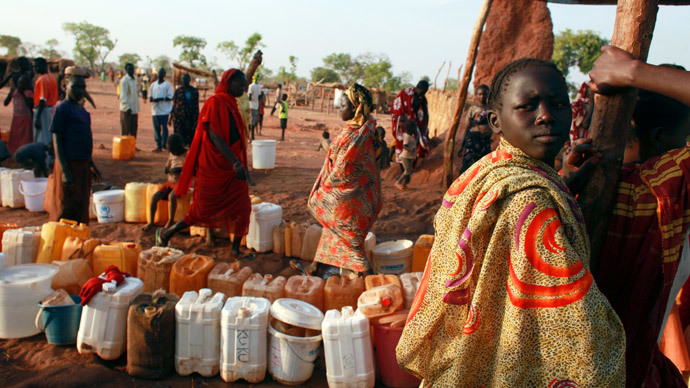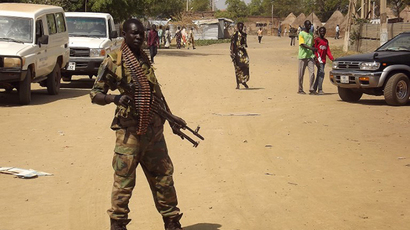UN: South Sudan has one month left before worst starvation in recent African history

South Sudan – the world’s youngest country, will face one of the most devastating famines to date in a matter of weeks, if radical action to alleviate widespread hunger isn’t taken before the planting season, UN agencies have been saying in April reports.
The Deputy Special Representative to the Secretary-General for the UN Mission in South Sudan, Toby Lanzer, said in April that the next two months are crucial and would require an injection of an estimated $230 million in international aid. If this is not done quickly, South Sudan stands on the brink of the worst outbreak of starvation since the 1980s, when Ethiopia lost hundreds of thousands of people. Similar conclusions were echoed by UN agency heads for the World Food Programme (WFP) and the Office of the UN High Commissioner for Refugees (UNHCR) on visits to IDP and refugee sites and towns, as well as the UN Office for the Coordination of Humanitarian Affairs (UNOCHA).
Almost a third of South Sudan’s nearly 10.8 million people face imminent starvation, the UN believes. If these assessments are correct, a little over a month remains before the crucial planting season ends, the rain hits, and the international community will be too late.
The country’s problems are complex and multi-faceted, but the same obstacles keep popping up. A sharp resurgence in tribal violence that started in mid-December 2013 has displaced 800,000 people in a country where access to resources was already scarce, not to mention regulated by political interests.
Add to that the onset of the wet season, which complicates humanitarian access to far-flung communities spread out across South Sudan’s vast landmass, and one gets a recipe for disaster.
But regarding the current calls for more funding, time is also of the essence for another key reason: the planting season ends just before the start of June, with the onset of rain. As Lanzer put it to reporters in early April in Geneva, “invest now or pay later.”
“If we miss the planting season, there will be a catastrophic decline in food security,” he explained. “What will strike that country, and it will hit about seven million people, will be more grave than anything that continent has seen since the mid-1980s.”
One worker in South Sudan’s displacement camps explained to care2.com that, “With the conflict, agricultural production has virtually stopped. Many have been displaced, have lost their land, tools, and therefore cannot engage in small-scale agriculture to support themselves. At the same time, trade has stopped up-country so markets are rare and seeds are expensive. In other words, South Sudan will not produce enough agricultural output to feed the population and will rely on external food aid.”

“This is a political crisis that is now evolving into a humanitarian catastrophe,” WFP head, Ertharin Cousin, said on a visit to Ethiopia, one of the refugee destinations for South Sudan, now harboring 90,000 of its people. In the same week, she visited Unity State, together with the UNHCR, recommending that the warring parties cease fighting and for international actors and NGOs to redouble their efforts in assisting the most vulnerable populations. That includes now close to a million displaced both internally and outside South Sudan, in neighboring Sudan, Kenya, Ethiopia and Uganda.
The latest fighting between two of the country’s biggest tribal denominations – the Dinka and the Nuer, started after President Salva Kiir, a Dinka, accused his vice-president, Riek Machar, a Nuer, of political dissent and staging a coup. What followed was an explosion of tit-for-tat violence and a deliberate inflaming of ethnic sentiments on both sides, a tactic frequently employed in Africa.
Both sides stand accused of brutality, including reports of door-to-door executions based on tribal markers, which is something the world witnessed in Rwanda in 1994.
And with colossal starvation looming, the country will face increasing crime. This is evident in the100 deaths following a cattle raid in Warrap state on Saturday, according to UN radio reports. In a country awash with guns, more and more people are driven by hunger to violence.
Although the effort to restore balance must be made both politically and through humanitarian aid, the most pressing issue is money. UN officials fear that other crises, such as Syria, are diverting the budget from South Sudan, which has received only a third of its $1.27 billion for 2014. Also this figure is less than in 2013.














